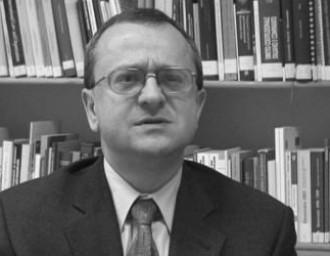No political momentum for the Eastern Partnership

From the start of the initiative in 2008/2009 Ukraine was the engine of the EaP until the decision of the court in Kyiv, which committed the former PM Y.Tymoshenko to 7 years in prison last year.
Most leaders of the EU member states, including the Visegrad Four countries, firmly believe that the lawsuits against former PM Yulia Tymoshenko, Interior Minister Yuriy Lutsenko and some other representatives of the Orange government are politically motivated. In the end the EU postponed both the signature and ratification process of the Association Agreement including DCFTA with Ukraine. Unless the current political momentum in EU–Ukraine relations is resolved, the dynamism of the whole EaP project will remain undermined. That’s because of the core of the EaP offer, e.g. the establishment of a new contractual framework between the EU and partner countries is not a feasible scenario in foreseeable future. It took five years for Ukraine (from 2007) to negotiate the new agreement with the EU in technical terms. Moldova and Georgia, the main contesters to take over leadership within EaP launched their respective talks in 2010. Unlike Ukraine, administrative capacities of both Moldova and Georgia are much weaker. In addition, Chisinau and Tbilisi cannot provide for the implementation of the agreed provisions on the entire territory of their states since they do not control them fully. Due to separatist entities of Transnistria, South Osetia and Abkhazia, Moldova and Georgia are not in capacity to implement DCFTA provisions within the whole customs territories of their states even if they will be ready to complete talks on technical level. The EU member states hardly could be interested in creating new black holes within the EU single market. However, Tymoshenko case is not a sole reason and/or pretence for the EU’s decelerating move in EaP deal with Ukraine. There is a real danger that the EU’s debt crisis might not only undermine the funding of the EaP but could also divert the EU’s attention away from this initiative. Politically, the EaP enjoys less support across the EU member states today than in the past. The perceived problem with the rule of law in Ukraine is only a small stone of changing mosaics of the EU’s approach towards the deal with Ukraine, including the EaP project as such. When it comes to the EU member states one can see that the last remaining EaP promoters within the EU are the V4 countries, Romania and Sweden.
Can You explain why?
Sweden together with Poland is the author of the EaP initiative. The EaP is the priority of the regional cooperation within the Visegrad Group. Three of the four of the V4 countries – Poland, Slovakia, and Hungary - share direct border on Ukraine and Belarus. Romania shares direct border on Moldova and Ukraine. The V4 countries and Romania are interested in a strong engagement of the EU in their direct Eastern neighbourhood since it serves their national interest in terms of enhancing security, boosting economic cooperation and foreign trade with their direct neighbours. Not least it improves their capacities to deal with partner countries on bilateral level.
Do you see any potential to engage other EU members more vigorously in the EaP's development?
I do not see such potential unless political momentum in the EU-Ukraine relations is resolved. And that will not happen anytime soon.
-
03.01
-
07.10
-
22.09
-
17.08
-
12.08
-
30.09








































